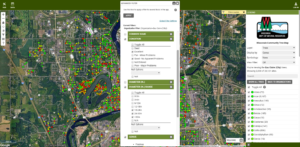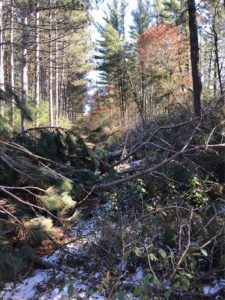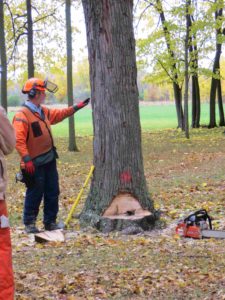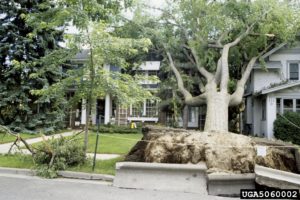By Don Peterson, Wisconsin Urban Wood
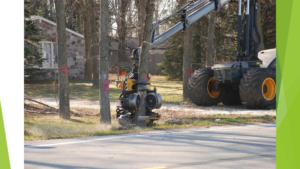 With thousands of trees on their properties, municipalities and other urban ownerships sometimes need to remove a large volume of trees at once, such as after an insect or disease outbreak (i.e., emerald ash borer) or a catastrophic weather event (wind/tornadoes or ice/snow damage). When this need arises, what are the options available to remove these trees efficiently, safely, cost effectively and quickly?
With thousands of trees on their properties, municipalities and other urban ownerships sometimes need to remove a large volume of trees at once, such as after an insect or disease outbreak (i.e., emerald ash borer) or a catastrophic weather event (wind/tornadoes or ice/snow damage). When this need arises, what are the options available to remove these trees efficiently, safely, cost effectively and quickly?
Mechanized logging equipment has become the standard for traditional tree harvests in most of the country’s rural forests. Using this type of equipment in urban tree removal projects is in its infancy, but it can be a very effective tool in the right circumstances.
Advantages of tree removal by mechanized logging equipment include:
Continue reading “Large-scale urban tree removal using mechanized logging equipment” →
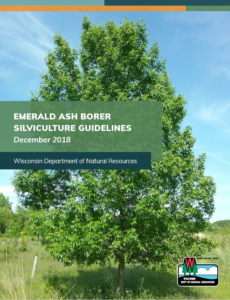 Continue reading “Updated emerald ash borer silviculture guidelines now available”
Continue reading “Updated emerald ash borer silviculture guidelines now available” 
 With thousands of trees on their properties, municipalities and other urban ownerships sometimes need to remove a large volume of trees at once, such as after an insect or disease outbreak (i.e., emerald ash borer) or a catastrophic weather event (wind/tornadoes or ice/snow damage). When this need arises, what are the options available to remove these trees efficiently, safely, cost effectively and quickly?
With thousands of trees on their properties, municipalities and other urban ownerships sometimes need to remove a large volume of trees at once, such as after an insect or disease outbreak (i.e., emerald ash borer) or a catastrophic weather event (wind/tornadoes or ice/snow damage). When this need arises, what are the options available to remove these trees efficiently, safely, cost effectively and quickly? 